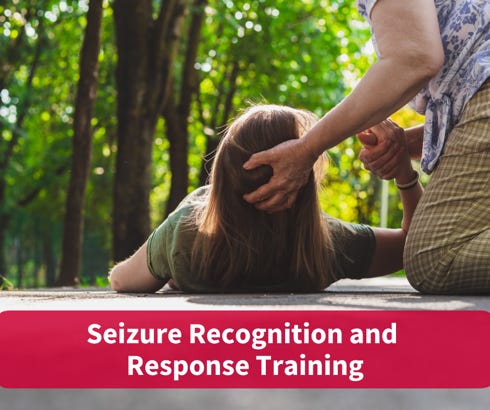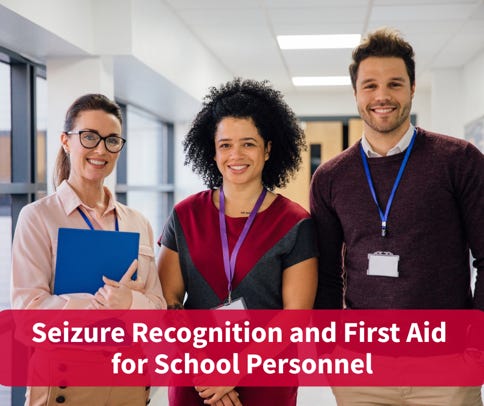Free Online Training Courses

Opioids in the Workplace: Awareness
This 1-hour training is free, entirely web based and can be accessed anytime via internet browser. This training was developed based on the NIEHS Worker Training Program’s Opioids and the Workplace Training Tool.
This course is designed for all workers, especially workers and employers who may be impacted by the opioid crisis and provides an evidence-based worker training program. Upon completion of this course, participants will be able to:
• Discuss the scope and severity of the opioid crisis.
• Summarize the relationship between workplace injuries and illnesses, working conditions, and
opioid use disorder.
• List actions that might be taken at the workplace to prevent and respond to opioid use and misuse.
This training is web based and self-paced, it can be started at any time (please note that once you begin, you must complete the training without exiting the page).
Length: 1 Hour
Additional Information/CE: At the end of the training, participants will receive a certificate of completion.
Access the training at https://go.rutgers.edu/OpioidTraining

Seizure Recognition and Response Training
This training is for anyone who wishes to learn more about how to help someone who has had a seizure. It provides basic information about epilepsy, seizures, and how epilepsy can affect an individual. Most importantly, it highlights the importance of having a Seizure Action Plan for anyone diagnosed with epilepsy and describes what you should do if you witness someone having a seizure.
After completing this training, learners will:
• Understand the basics of epilepsy
• Recognize common seizure types, treatment options, and their possible impact on individuals
• Identify appropriate first aid and recognize when a seizure is a medical emergency
• Understand how to administer rescue medicines, if applicable
• Identify key components of the Americans with Disabilities Act (ADA), and
• Know where to find local community support for more information
Length: 45 minutes
Access the training at https://go.rutgers.edu/SeizureRecognition

Seizure Recognition and First Aid for School Personnel
This training is specifically for school personnel. It provides basic information about epilepsy, seizures, and how epilepsy can affect a student's learning. It highlights the importance of having a Seizure Action Plan for students diagnosed with epilepsy and describes what to do if a student has a seizure.
After completing this training, learners will:
• Understand the basics about epilepsy
• Recognize common seizure types, treatment options, and their possible impact on student learning
• Explain the importance of have a Student Action Plan.
• Identify appropriate first aid and recognize when a seizure is a medical emergency
• Understand how to administer rescue medicines, if applicable, and
• Know where to find local community support for more information
Length: 45 minutes
Additional Information/CE: Many states require ALL school personnel to take training in epilepsy first aid. CHES credits are provided for Certified Health Education Specialists.
Take this Training: https://rutgerstraining.sph.rutgers.edu/Epilepsy

Reconocimiento de Incautaciones y
Primeros Auxilios para el Personal Escolar
Esta capacitación es específicamente para el personal de la escuela; proporciona información básica sobre la epilepsia, las convulsiones y cómo la epilepsia puede afectar el aprendizaje de un estudiante. Se destaca la importancia de tener un Plan de Acción para Atender Convulsiones en estudiantes diagnosticados con epilepsia y describe qué hacer si un estudiante tiene una convulsión.
Después de completar esta capacitación, los estudiantes podrán:
• Comprender los conceptos básicos sobre la epilepsia.
• Reconocer los tipos de convulsiones comunes, las opciones de
tratamiento y su posible impacto en el aprendizaje de los estudiantes.
• Explicar la importancia de tener un Plan de Acción Estudiantil.
• Identificar los primeros auxilios apropiados y reconocer cuando una
convulsión es una emergencia médica.
• Comprender cómo administrar medicamentos de rescate, si corresponde, y
• Conocer dónde encontrar apoyo de la comunidad local para obtener más información.
Duración: 45 minutos
Información adicional/CE: Muchos estados exigen que todo el personal escolar reciba capacitación en primeros auxilios para la epilepsia. Los créditos CHES se otorgan a especialistas certificados en educación para la salud. Se otorgan créditos de educación continua a Especialistas en Educación en Salud Certificados (CHES, por sus siglas en inglés).
Realice esta capacitación aquí: https://rutgerstraining.sph.rutgers.edu/la_epilepsia
Seizure Recognition and Response Training for
Law Enforcement
This training is specifically for law enforcement professionals who wish to learn more about how to respond to a call where someone may have experienced a seizure.
The first sections of this training provide basic information about epilepsy, seizures, and how epilepsy can affect an individual. It also highlights the importance of having a Seizure Action Plan for anyone diagnosed with epilepsy and describes what first aid efforts you can begin if you witness someone having a seizure.
The final sections include specific content to help you as a law enforcement professional to identify when someone's behavior might be the result of a seizure, preparing you to respond appropriately.
After completing this training, learners will:
• Understand the basics of epilepsy
• Recognize common seizure types, treatment options, and their possible impact on individuals
• Identify appropriate first aid and recognize when a seizure is a medical emergency
• Understand how to administer rescue medicines, if applicable
• Recognize behaviors that may appear to be disruptive but are in fact seizure-related
• Identify key components of the Americans with Disabilities Act (ADA), and
Know where to find local community support for more information
Length: 45 minutes
Access the training at: https://rutgerstraining.sph.rutgers.edu/SeizureRecognitionLaw
21st Century Public Health Practice
This 8-module, self-paced training was originally developed for graduate students at the Rutgers School of Public Health and has now been adapted for use by early-career public health practitioners. Modules must be completed in order, and all modules must be completed to receive credits - there is no 'partial credit’ option. New Jersey Public Health credits will be provided through NJLMN, and CHES/MCHES credits will be provided through NCHEC.
This course was developed in Canvas. The link below will allow you to register for the course in Canvas - or create a new Canvas account if needed: https://go.rutgers.edu/21stcenturypractice.
Back Pain Prevention for Workers
This 40-minute awareness course is designed for workers whose jobs involve heavy lifting, bending, twisting, and other physically demanding tasks that increase the risk of back injury. Ideal for industrial and high-exertion work environments, the training helps participants better understand how back pain develops and how to prevent it.
Participants will review basic spinal anatomy and function, learn about the most common causes and patterns of low back pain, and explore practical, evidence-based strategies to reduce injury risk on the job.
Access the training at: https://rutgerstraining.sph.rutgers.edu/Back_Pain_Prevention
A Guide to Roles and Responsibilities of a
New Jersey Board of Health
Coming soon